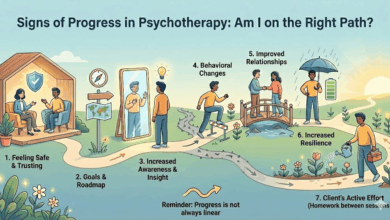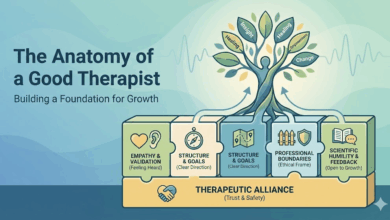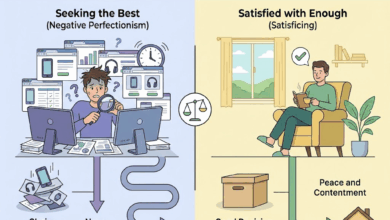When Your Mind Feels Tired and You Don’t Know Why

Based on an article from Popular Science
We’ve all felt it — those days when your brain seems foggy, focus slips away, your memory feels unreliable, and even simple tasks take too much effort. Scientists call this brain fog, a mental haze often rooted in chronic stress and anxiety.
Recent research shows that long-term stress doesn’t just affect mood — it literally reshapes how the brain works. Over time, it dulls concentration, weakens memory, and makes decision-making harder. But here’s the hopeful part: the brain can recover, if we learn how to break the cycle of stress.
The Brain in Survival Mode
When you’re under stress, your brain faces a conflict; it needs to think clearly, but it also feels under threat.
That’s when the sympathetic nervous system, the “fight-or-flight” response, takes over. Blood flow shifts away from the prefrontal cortex — the area responsible for logic and focus — toward older brain regions that handle quick reactions.
The result: deep thinking, creativity, and planning fade. If this state continues, the brain gets used to it; stuck in survival mode even when there’s no real danger.
Chronic stress also raises cortisol, the body’s stress hormone. In excess, cortisol inflames and damages neurons in the hippocampus; the brain’s memory hub. That’s why during stressful periods, forgetfulness, fatigue, and even a sense of emptiness become so common.
Silent Stress: The Anxiety You Don’t Notice
Stress isn’t always dramatic. Sometimes it’s the constant stream of small triggers — notifications, deadlines, negative news, comparisons — that keeps the mind on high alert.
Your body may appear calm, but your brain is still running a quiet emergency drill.
This invisible strain is dangerous because it’s easy to miss. You just wake up one day unable to concentrate, unable to enjoy what you used to, and unsure why everything feels heavier.
Reversing Brain Fog
The good news is that the brain is remarkably plastic; it can rebuild itself. But like a muscle that’s been overworked, it needs rest and retraining.
Here are a few simple but effective habits experts recommend:
۱. Slow, deep breathing
Even a few minutes of mindful breathing activates the parasympathetic nervous system — the body’s natural “calm down” switch.
۲. Short, real breaks
Five minutes away from screens, just looking outside or stretching, helps reset the brain’s creative and focus networks.
۳. Quality sleep
Lack of sleep raises cortisol and dulls attention. Deep sleep allows the brain to clear stress-related toxins and reset emotional balance.
۴. Fewer digital distractions
Every notification breaks concentration. Turning them off; or keeping your phone out of reach — is like closing the door to your mental workspace.
۵. Time in nature
Even brief exposure to sunlight, trees, or open air boosts serotonin and helps the emotional centers of the brain recover.
The Vanishing Art of Focus
Modern researchers call it attention fatigue: the mind’s inability to choose where to focus.
Our culture prizes constant availability and multitasking, but the human brain was never built for nonstop stimulation.
We need deep focus and true rest; not just to be productive, but to stay sane. Sometimes, the most productive thing you can do is schedule time for nothing at all.
Hope and Recovery
The effects of chronic stress are real; but they’re not permanent. The brain can heal when we give it room to breathe.
That doesn’t mean escaping life. It means redefining how we live it. A few mindful minutes, steady sleep, a quiet walk, a conscious breath; these small acts remind the brain how to be calm again.
Sometimes the greatest therapy is returning to simplicity:
To the present. To the body. To the breath.
Source: Popular Science – “Stress and anxiety wear down your brain. Here’s how to fight back.”




